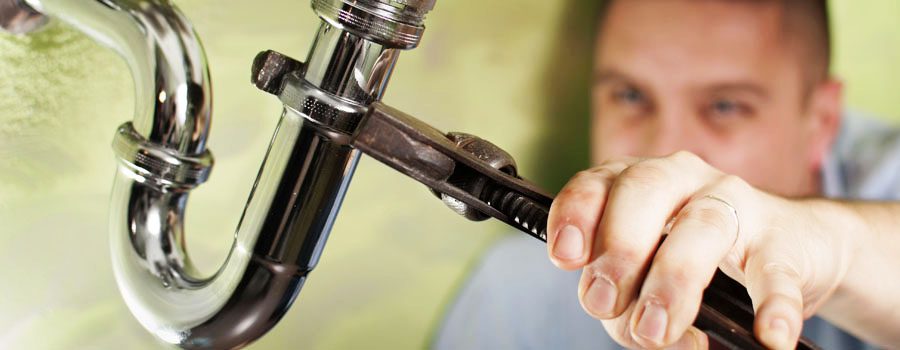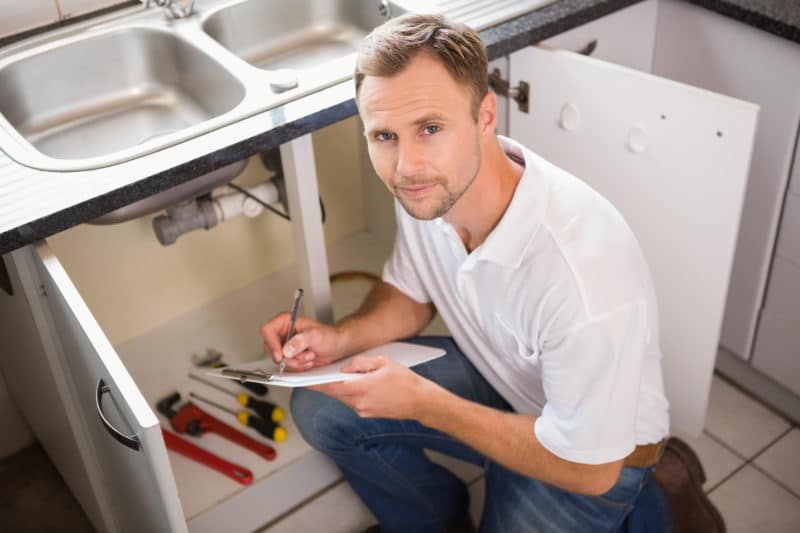Six Most Common Threats For Your Home Plumbing Appliances
Six Most Common Threats For Your Home Plumbing Appliances
Blog Article
We've noticed this article on Ways to Make Your Pipes Last Longer directly below on the internet and accepted it made sense to discuss it with you on this site.

The trick to long lasting devices, unsurprisingly, appertains upkeep. There's no set rule that can ensure your plumbing home appliances a lengthy wear, but you can protect against unnecessary damages and also fixings by preventing poor plumbing practices.
You should quit doing these 6 things else you'll maintain calling your plumber over for minor faults.
Flushing everything
Yes, your commode drain brings about the drains, but that does not mean you should dump simply anything away. Several 'flushable' products are really terrific blockage starters, as an example floss. Asides keeping obvious non-flushable products like wires and plastics out of your bathroom, you ought to additionally prevent flushing cotton buds, menstruation products, wipes, daipers and also condoms down the commode drain.
Pouring grease in the sink
We understand effectively getting rid of grease after a hearty meal is a pain. But merely putting it away can do lasting injury to your pipelines. "The fat as well as grease can obstruct your drainpipe terribly sufficient to compel you to call a plumber," describes Dawson. "Plumbing functions best when it's well taken care of-- not abused with grease."
Utilizing way too much drainpipe cleaner
Using a drain cleaner more than once or twice a month is a sign that something significant is taking place within your pipelines. Currently, as opposed to encountering the major issue, you choose a quick fix; a carbonated drain cleaner. Rightfully, a drain cleaner will deal with the blockage, but at what cost?
The chemicals in a drainpipe cleanser can speed up the rust of your pipes. Include that to whatever underlying issue is causing the obstruction and also you may need to a significant issue on your hands.
If you experience too many obstructions, call your emergency plumber rather than using a drainpipe cleaner.
Not rinsing meals before filling them into the dish washer
it's called a dishwashing machine, but tossing in recipes, pots, and frying pans covered in large food bits can in fact cause some severe damages to the appliance, causing lasting problems down the line. "Home owners may have to obtain their dishwashing machine repaired regularly if they do not rinse their recipes prior to loading, or at the very least get rid of larger food pieces," discusses Audrey Monell, proprietor of Forrest Anderson Plumbing and AC in Glendale, Arizona. "Food that obtains stuck on dishes creates the dishwashing machine to work harder, which can wear down components faster, leading to problems."
DIYing every little thing
With plumbing, a stitch in time really does conserve 9. You can avoid a fullblown plumbing emergency by calling your plumber at the correct time.
You may have discovered a couple of plumbing hacks from your dad, however you should certainly know where to fix a limit and also call an expert. For instance, you might have the ability to fix a clog yourself, however you should not attempt to transform a pipeline. You could mismatch pipelines or overtighten a screw, causing even more injury as well as damages than you believed. Calling a plumber is a secure and also cost effective decision.
Not changing your dishwasher hoses
One easy means to make certain that you utilize your dishwashing machine for many years is to replace the hose at least as soon as in 5 years. This likewise obtains washing machine tubes.
Gradually, food particles, soap and also oil can form obstructions within your pipes. Changing them promptly will certainly prevent any kind of presure develop that can harm the internal operations of your dishwashing machine or cleaning device.
An enhanced steel braided pipe does a fantastic task of prolonging your device's usage time.
No winter safety measures
Severe weather conditions misbehave for your pipes, specifically if they're made from steel. You ought to protect your subjected pipes, as well as your water storage tank, even if you have a hot water heater. You should also turn off your yard hose valve and also any other exterior water channels. These networks are outlets for cool; you pipes can start to ice up from outside if you don't.
How Hard Water Damages Your Plumbing and Appliances
Hard water is no stranger to most households across America. This silent invader affects 85% of homes in the United States every day, wreaking havoc on pipes, plumbing fixtures, and water-using appliances.
Should you become a victim of hard water, you must understand exactly what it is and how it affects your plumbing and appliances. This will help you determine the correct measures to put in place to fix or prevent any problems that may arise.
First off, what exactly is “hard” water?
In short, “hard water” is used to describe water that contains relatively high amounts of dissolved minerals, primarily calcium and magnesium, and a host of trace metals. When rainwater falls from the sky (usually in a pure form), it absorbs the hardness minerals from rocks and soil, which changes it from soft to hard water.
What about my plumbing and appliances?
Mineral deposits from hard water can cause buildup on tubs, shower, sinks, faucets. But that’s only a small scratch of the surface. Those minerals can gradually build up inside pipes, fixtures, water heaters, washing machines, and dishwashers. Once they accumulate in those areas, they can clog pipes and create major problems throughout your plumbing system, from reduced water flow to increased pressure on pipes and fixtures.
This limescale buildup might affect some appliances, causing them to operate less efficiently and wear down faster. And the result? Higher energy bills, more (costly) plumbing replacements and repairs, and damaged appliances.
Keep in mind that certain types of plumbing are more susceptible to clogging than others. Copper, PVC, and PEX pipes are more resistant to hard water buildup and corrosion, but they can still get clogged or completely blocked by scale deposits.
How do I know if my water is hard?
White limescale buildup on plumbing fixtures (or any of the other signs mentioned above) is usually a good sign that your water is hard. If you suspect that you have hard water, you can simply shake up a small amount of dish soap and water in a closed container. If the mixture doesn’t create a lot of suds, you probably have hard water.
The most precise method, however, is to test your water with a DIY test kit (sold online or at local home centers or hardware stores) or send a water sample from your tap to a local lab to be tested. Be sure that you understand the nature of the test, the water condition being measured, and the significance of the test results.
Another way to obtain an estimate of water hardness is to check your annual water quality report to see if your water provider has reported any instance(s) of water hardness in your water supply.
https://www.springwellwater.com/how-hard-water-damages-your-plumbing-and-appliances/

Hopefully you enjoyed our piece about Don’t Let an Earthquake Damage Your Plumbing. Thanks so much for taking time to browse our article. Enjoyed reading our entry? Please share it. Help someone else locate it. I thank you for reading our article about Leak Detection and Repair Without Destroying Your Home.
Go Services Report this page